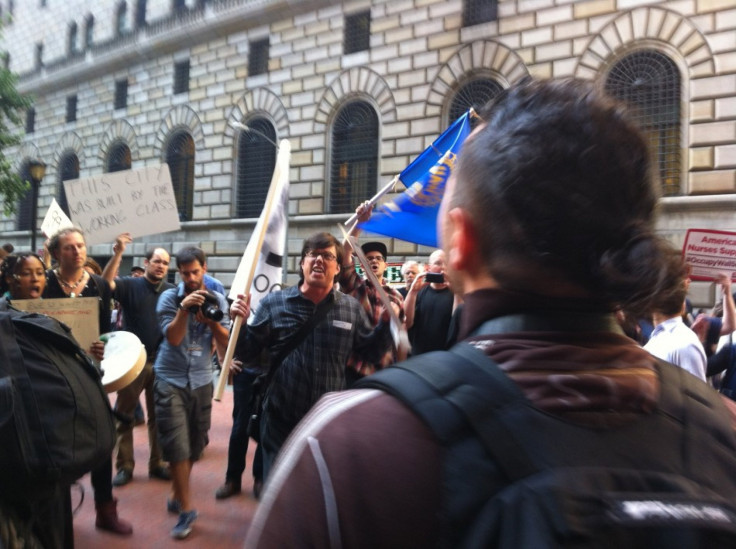On One-Year Anniversary, Occupy Wall Street's Diversity On Display During Protest

From the beginning, the prevailing critique of Occupy Wall Street -- or misconception, depending on whom you ask -- was that it was incoherent, lacking discipline, unable to articulate an overarching theme or set of demands.
A year to the day after protesters descended on Zuccotti Park, launching what would become a national phenomenon, little has changed. The protesters who turned out to mark Occupy's anniversary had a vast number of causes.
One demonstrator, asked what had compelled her to hit the streets, listed corporate influence in politics; environmental justice; ending war; defying the mainstream media; the National Defense Authorization Act of 2011; Guantanamo Bay; the New York Police Department's controversial stop and frisk policy; the war on drugs; and the deplorable state of the American education system.
Occupy's Unifying Theme: Entrenched, Moneyed Interests Have Corrupted Political Process
But that wide range of indignation was always sort of the point. A banner soaring high above the crowd gathered in front of the National Museum of the American Indian, near the iconic Wall Street bull, read "All our grievances are connected." That captures something essential about Occupy Wall Street: there are a multitude of issues at stake, but they are unified by a sense that entrenched moneyed interests have corrupted the political process and eroded social justice.
"I don't want to be governed by corporations," 74-year-old Connie Bartusis said. "It's inappropriate, it destroys democracy and it destroys our people."
Demonstrators said they relished the opportunity to trumpet their individual causes. Beth Whitney, a 45-year old artist who has advocated for more regulation of the art market, said that Occupy-related activism has been ongoing even if the streets have been empty; September 17, she said, simply showcases it.
"It's been great, because it brings all these groups who are kind of invisible together," Whitney said.
There were still reliable targets as the demonstration wounds its way through the Financial District, constantly trying to elude the ubiquitous police officers herding them onto sidewalks. Protesters rallied outside of Bank of America offices. They paused outside the offices of the labor law firm Jackon Lewis and chanted "What's disgusting? union busting!" They halted traffic at the intersection of Wall Street and Water street, prompting a harried-looking businessman in a white shirt and tie to hold his middle finger aloft.
Natural Gas 'Fracking' Also Protested
But within the columns of shouting protesters, different grievances abounded. There was a sizeable contingent from the AIDS advocacy organization ACT UP, calling for a surtax on financial transactions to aid AIDS research. People held up signs denouncing fracking, the shorthand term for the process used to harvest underground deposits of natural gas. An associate professor at Cornell Medical College held up a sign bearing the phrase "WHOSE SCIENCE? OUR SCIENCE!" and explained that the drive for profits has undermined medical research.
"The argument for funding science is always framed in terms of stimulus to the economy," the professor, 37-year-old Jay Zevin, said. "It's part of the evolution of a culture that doesn't value anything you can't put a price tag on."
The massive total amount of student debt in the United States has long been a theme of Occupy, and it was on display Monday. A recent State University of New York graduate named Cora (she declined to give her first name for fear of damaging her job prospects) said she was already $32,000 in debt, $2,000 of it interest. Despite the fact that her mother works for the State University of New York, Cora said, she was only able to get a meager $200 in tuition aid a semester.
"I think education is a right," Cora said. "Some people can disagree and think you can't just get a free education, but our taxes are going to wars, to the police officers who are watching us right now. It has to go somewhere, and it could be going to people who need it."
--
© Copyright IBTimes 2024. All rights reserved.











